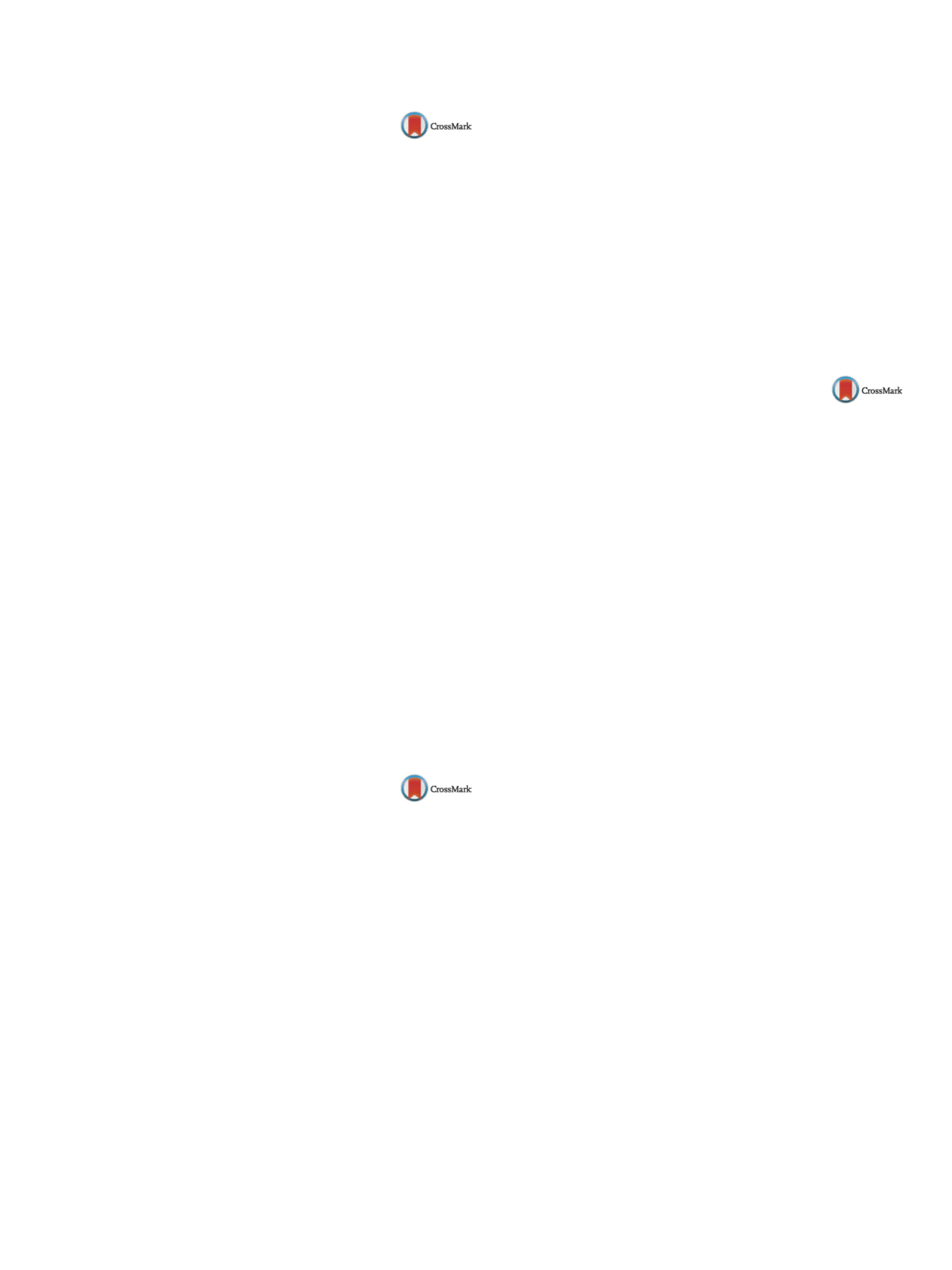

25th European Congress of Psychiatry / European Psychiatry 41S (2017) S521–S582
S533
EV0395
Body appreciation: A buffer against
the impact of shame on depression
J. Marta-Simões
∗
, C. Ferreira , A.L. Mendes
Faculty of Psychology and Education Sciences, University of Coimbra,
CINEICC, Cognitive-Behavioral Center for Research and Intervention,
Coimbra, Portugal
∗
Corresponding author.
Shame is defined as a painful affect, associated with the per-
ception that one’s personal characteristics and/or behaviours are
seen by others as unattractive. Since it signals the possibility of
rejection, high levels of shame associate with high psychologi-
cal suffering and several psychopathological conditions, namely
depression. In contrast, body appreciation is considered a set of
attitudes of acceptance and affection towards one’s body image,
even when one is displeased with certain body characteristics,
being therefore a disposition to self-soothing and care. Taking into
account the association of body appreciation with healthy men-
tal functioning, this study aimed at exploring the buffering effect
of body appreciation against shame’s impact on the display of
depression symptoms. This hypothesis was tested through path
analysis in a community sample of adult men and women. Results
revealed body appreciation as a significant moderator of the asso-
ciation between external shame and depressive symptomatology.
The tested model explained 45% of the variance of depressive
symptomatology. A graphical representation allowed understand-
ing that this moderator effect is particularly expressive in those
who experience medium to high levels of shame. In these cases,
men and women who present higher body appreciation tend to
display fewer depression symptoms. These results seem to empha-
size the importance of establishing a positive relationship with
one’s own body image, which appears to be protective either for
men’s and women’s mental health. Considering its buffering effect
of shame’s impact on depression, upcoming interventions in this
area could benefit from the assessment and cultivation of positive
body image.
Disclosure of interest
The authors have not supplied their decla-
ration of competing interest.
http://dx.doi.org/10.1016/j.eurpsy.2017.01.725EV0396
Type D personality and metabolic
syndrome in patients with depression
M. Martinac
1 ,∗
, D. Babi´c
2, M. Pavlovi´c
21
Public Health Centre Mostar, Centre for Mental Health, Mostar,
Bosnia and Herzegovina
2
University hospital Mostar, Department of Psychiatry, Mostar,
Bosnia and Herzegovina
∗
Corresponding author.
Introduction
Pathogenesis of metabolic syndrome (MS) and
depression (MDD) is complex and insufficiently explored. In
addition to chronic stress, psychotrauma, hypercortisolemia and
immunological factors, some personality features may have an
impact. TypeDpersonality, most influential personality type inpsy-
chosomatic medicine, consists of two dimensions: negative affect
(NA) and social inhibition (SI). Individuals with type D personality
are more anxious, irritable and depressed and they do not share
these emotions with others because of their fear of rejection. Type
D personality was proven to be a risk factor for some MS com-
ponents, as well as for the occurrence of depressive symptoms in
cardiac patients.
Aim
To investigate the association of type D personality with MS
and its components in MDD patients.
Methods
Cross-sectional study was conducted on the sample of
80 patients with depression and 40 healthy subjects as the control
group. Mini International Neuropsychiatric Interview (MINI ques-
tionnaire) and Hamilton Rating Scale for Depression (HDRS-17)
were used for the diagnosis of depression. Type D personality was
determined by DS14 questionnaire. The MS diagnosis was made
according to ATP III criteria.
Results
The presence of type D personality did not significantly
contribute to the probability of developing MS in patients with
depression. NA was associated with abdominal obesity, low HDL-
cholesterol and hypertension.
Conclusion
Negative affect was proven to be an independent risk
factor in the pathogenesis of obesity, hypertension, and reduced
level of HDL-cholesterol, while type D personality in general did
not have predictive value for the MS development.
Disclosure of interest
The authors have not supplied their decla-
ration of competing interest.
http://dx.doi.org/10.1016/j.eurpsy.2017.01.726EV0397
Peculiarities of depressive disorders
of “working” emigrants and
re-emigrants
N. Maruta
∗
, 1, O. Venger
21
Institute of Neurology, Psychiatry and Narcology of National
Academy of Medical Science of Ukraine, SI, Borderline pathology,
Kharkiv, Ukraine
2
State Higher Educational Institution,I. Ya. Horbachevskyi’s, Ternopil
State Medical University of the Ministry of Health of Ukraine,
Neurology, Psychiatry, Narcology and Medical Psychology, Ternopil,
Ukraine
∗
Corresponding author.
Introduction
The problem of emigration and re-emigration in
Ukraine is among the most actual state and social problems.
Objectives
To research clinical-psychopathological peculiarities
of depressions in “working” emigrants and re-emigrants.
Methodology
The investigation was carried out in Ternopil
Region. Psychogenic depressive disorders (F43.21 and F43.22
according to ICD-10) were diagnosed in 69 non-emigrants, 68 emi-
grants, and 67 re-emigrants; endogenous ones (F31.3, F31.4, F32.1,
F32.2, F33.1, and F33.2 according to ICD-10) were diagnosed in
65, 66, and 63 persons correspondingly; and organic ones (F06.3
according to ICD-10) were diagnosed in 64, 62, and 61 persons
correspondingly.
Results
It was found out an influence of emigration and re-
emigration factors on psychoemotional sphere of the patients. The
influence of the emigration factor was the most manifested in
patients with psychogenic depressive disorders and was a less
manifested in patients with endogenous and organic depression.
Re-emigrants had themost severe depressive symptoms thatmight
be explained by an impact of psychosocial factors. In the syn-
dromological structure of depressive disorders it was determined
that re-emigrants were more affected by typical affective syn-
dromes – vital and apathic depression, whereas emigrants were
more affected by atypical affective syndromes, including anxious-
depressive and agitation ones. It might be explained by an influence
of objective social-psychological factors as well as an intrapsychic
transformation of actual stressors connected with emigration and
re-emigration.
Conclusions
Emigration should be considered as a factor pro-
moting a pathologically characterological development towards
anxious-depressive changes, whereas re-emigration should be con-
sidered as a factor of asthenic-depressive and apathic-depressive
transformations.
Disclosure of interest
The authors have not supplied their decla-
ration of competing interest.
http://dx.doi.org/10.1016/j.eurpsy.2017.01.727

















